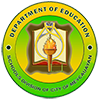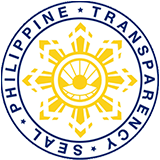FERNAND KEVIN A. DUMALAY
PRINCIPAL I
LONGOS ELEMENTARY SCHOOL
Learning must continue regardless of the difficulty of circumstances because only education can be the solution to most of our problems. The Department of Education, under the leadership of our Secretary Leonor Magtolis Briones remained committed to this constitutional mandate and exerted every effort necessary to deliver quality education in the midst of the pandemic. Our leaders in the department introduced various distance learning modalities which can cater to all types of student backgrounds and contexts to ensure that no learner gets left behind. Both school leaders and teachers were provided trainings so that they could cope with the new demands in the field and to be equipped with the new set of skills needed for alternative delivery modalities. Aside from these, DepEd also released a set of competencies taken from the original K-12 curriculum which are collectively called the Most Essential Learning Competencies to address certain limitations to instruction posed by the ongoing public health emergency. Since last school year when face-to-face classes were prohibited, all regions, divisions, and schools had not stopped planning and implementing activities and programs that would ensure the delivery of quality basic education. But are these efforts enough? Are we able to meet our goals? Can education truly continue?
I was assigned to Longos Elementary School as their new School Principal last August 2021. Although I was new to the institution, I did my best to implement changes that would benefit both the teachers and the students and would ensure that we give the kind of service our stakeholders deserve. As I planned with my colleagues, had formal and informal conversations with stakeholders, and observed classes of teachers, I witnessed firsthand the opportunities brought by these MELCs and the strengths and weaknesses of the different distance learning modalities. As regards the MELCs, it was generally true that the curriculum became more manageable for teachers since the number of competencies per learning area across grade levels was reduced, merged, and dropped. Our teachers were able to focus their limited class time (online for those who had the means to join online classes) on discussing important concepts and topics. They were also able to spend more time creating and improving their instructional materials and implementing programs for the students since their allotted teaching hours a day had also been reduced. And since most of the modules and activity sheets came from the Division Office, they had more time with other tasks assigned to them. However, my teachers found problems in the MELCs of some subjects. One is that some MELCs would require a lot of tasks from students, but the time allotment was impractical like in the case of TLE (only two hours of face-to-face classes every week based on the proposed class schedule). My teachers observed that the MELCs in the language subjects must be revisited since it was either one grading has too many MELCS (Filipino) or important competencies were removed (grammar topics in English) which students needed to master further. We tried to resolve these issues by adjusting what we could adjust during the delivery of instruction (the Taught Curriculum). As I would always tell my teachers, we had to be solution-oriented and we should not rely on higher authorities to provide solutions for us.
As regards the assessment of learning, formative tests, performance tasks, and evaluation activities were usually done during asynchronous sessions wherein learners were expected to answer the activities with accuracy and integrity. Most of the students in our school were able to comply with all the requirements and were able to receive satisfactory grades. However, when I conducted meetings with parents, I found some problems which could not easily be addressed – integrity and honesty in answering modules. Some parents were the ones answering the modules while others would even pay tutors to answer these modules for their kids. I told the parents that they were not helping their kids if their priority was getting high grades and not learning. I believed that though we could not monitor what they do at home, we would not get tired of educating both parents and learners about important values all of us must possess.
That was when I made the school tagline, “Shaping Character, Forging Excellence.” I told them that before we hone the mind, we must develop our values and principles first for this was the only way we could truly be successful in life. Until this day, we conduct regular meetings with parents to let them feel that we are serious about the things we say. My teachers are also thinking of more ways how to ensure the credibility of scores by relying more on integrative performance tasks rather than pen and paper tests. We may say then that although the MELCs provided us an opportunity to achieve education continuity, if schools were not proactive enough and critical enough, the instruction may lead to half-baked results and poor learning outcomes.
On one hand, we did not have very serious problems in our implementation of our offered distance learning modalities. I was even very happy because before I was assigned to the school, they were only offering pure modular distance learning (print) saying that it was the most preferred in the community and internet connection was a problem. It was true that internet connection was really an issue but then I insisted that online distance learning be offered for this school year. I found out during my consultative meetings with teachers, even them did not want to offer ODL because they thought they were not ready for it and that they did not have then the skills. What I did was I provided a series of trainings to my teachers and asked them to attend capacity-building seminars and before the school year started, we even conducted pilot testing. I think more than these efforts, what makes our ODL implementation successful was I believed in my teachers. They kept telling me they could not, but I refused to accept that and told them they can. From 8 learners who wanted ODL based on our LESF, we now have almost 300 students out of 350 who subscribed to Blended Distance Learning (Combination of Modular DL and Online DL) and my teacher s are now being praised by parents because of the very interactive online classes. My teachers continued to be creative in presenting lessons and more students became engaged. Most of the parents supported this modality by getting broadband internet so that their children can attend online sessions. For some who could not afford these, I created Project DIVE (Distribution of Internet Vouchers for E-learning) which allowed all students and parents to have access to the internet for a limited time using the school’s connectivity. Some still wanted to join the online classes, but they could not because they did not have the gadgets. I hope DepEd could continue to provide our learners and teachers with what they need. As regards the learners who chose printed modules, we generally had no issue since most of them comply. However, what bothers me is the possibility that these kids are not really learning and acquiring the desired competencies. They may be getting good scores in the activities, but their learning experiences may not be complete. Some learners were not ready for self-paced and until now, we are doing our best to train parents and volunteer tutors to help them. I think this is one of the criticisms of MDL. We assumed that parents can be co-facilitators and that students can manage, but in reality, both of them cannot. It is because we are all used to face-to-face instruction, and we need more trainings and preparation so we could be successful in this aspect.
By and large, the success and the achievement of our aspirations cannot be attributed to brilliant policies and their implementation alone. Our current systems are still full of imperfections, but our collective effort, dedication, and innovation make the difference. School leadership plays a crucial role in this endeavour. Education leaders must know how to assess situations, create innovative solutions and inspire their school-community members to be actively involved in the process. And I can proudly say that in our division, this has been demonstrated from the SDO level down to the school level. Moreover, regardless of these threats and weaknesses, education can continue if we work together and mobilize all our stakeholders reminding them of their roles in the educative process.


